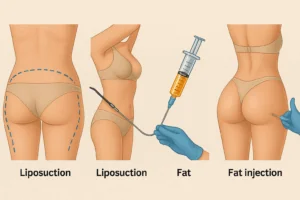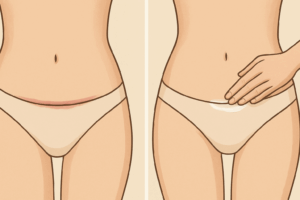In today's world, stress has become a part of almost everyone's daily life. Work, social relationships, financial concerns and many other factors can be sources of stress. However, when stress is not managed, it can have serious effects on our physical and mental health. In this article, we will discuss in detail the methods of coping with stress from the perspective of a clinical psychologist.
What is Stress?
Stress is our body's natural response to any demand or threat. When we are under stress, our body releases hormones such as cortisol and adrenaline. In the short term, these hormones make us more alert and focused. But long-term stress can have negative effects on our body and mind.
Symptoms of Stress
Stress can have physical and psychological symptoms:
Physical Symptoms:
- Headache
- Muscle tension
- Sleep disorders
- Stomach problems
- Fatigue
- Weakening of the immune system
Psikolojik Belirtiler:
- Anxiety
- Depression
- İrritabilite
- Difficulty concentrating
- Memory problems
- Fluctuations in mood
Methods of Coping with Stress
As a clinical psychologist, I recommend various methods to deal with stress. Here are some of the most effective ones:
1. Mindfulness and Mindfulness Techniques
Mindfulness is the practice of focusing on your present experience without judgment. Mindfulness techniques are highly effective in stress management.
Implementation:
- Sit in a quiet environment for 10-15 minutes a day.
- Focus on your breath.
- Observe your thoughts without judgment and let them pass.
- Practice regularly.
2. Regular Exercise
Physical activity reduces stress hormones and increases the release of endorphins.
Recommendations:
- Do at least 150 minutes of moderate-intensity aerobic exercise per week.
- Opt for activities such as walking, jogging, swimming or cycling.
- Try mind-body exercises such as yoga or tai chi.
3. Healthy Nutrition
Our eating habits can affect our mood and stress levels.
Recommendations:
- Eat plenty of fruits, vegetables and whole grains.
- Include foods rich in omega-3 fatty acids (fish, walnuts, flaxseeds) in your diet.
- Limit caffeine and alcohol consumption.
4. Sleep Pattern
Adequate and quality sleep plays a critical role in stress management.
Tips
- Establish a regular sleep schedule.
- Do relaxing activities before going to bed (reading, light stretching).
- Keep your bedroom dark, quiet and cool.
- Limit the use of electronic devices before bedtime.
5. Time Management
Effective time management can significantly reduce your stress levels.
Strategies
- Set your priorities.
- Create daily or weekly to-do lists.
- Break large tasks into small, manageable chunks.
- Learn to say "no" and avoid overloading.
6. Social Support
Strong social ties are an important resource for coping with stress.
Recommendations:
- Communicate regularly with family and friends.
- Share your feelings and concerns.
- Do not hesitate to ask for help when needed.
- Participate in community activities or volunteer work.
7. Cognitive Restructuring
This technique involves identifying and changing stressful thought patterns.
Implementation:
- Identify your stressful thoughts.
- Question whether these thoughts are realistic.
- Develop more balanced and realistic alternative thoughts.
- Put this new way of thinking into practice.
8. Relaxation Techniques
Various relaxation techniques are effective in reducing the stress response.
Recommendations:
- Do deep breathing exercises.
- Apply the progressive muscle relaxation technique.
- Try guided imagery techniques.
- Explore meditation practices.
9. Developing Hobbies and Interests
Engaging in activities you enjoy reduces stress and improves your quality of life.
Ideas
- Learn a new skill (e.g. playing a musical instrument, painting).
- Do gardening.
- Get into the habit of reading books.
- Write creatively or keep a diary.
10. Getting Professional Help
Sometimes it can be difficult to cope with stress on your own. In these cases it is important to seek professional help.
When to Apply:
- If stress is affecting your daily functioning.
- You are experiencing symptoms of anxiety or depression.
- If physical symptoms of stress persist.
- You use unhealthy ways to cope with stress (e.g. alcohol or substance abuse).
Conclusion
Stress may be an inevitable part of life, but how we deal with it is up to us. Regularly practicing the methods mentioned above will help you manage stress. Remember that every individual is different and it may take time to discover the methods that work best for you.
Stress management is a continuous process of learning and practicing. Be patient with yourself and start with small steps. Over time, you will find that you are able to deal with stress more effectively and your overall quality of life will improve.
If you are having difficulty managing stress or if stress is seriously affecting your life, do not hesitate to seek help from a clinical psychologist or mental health professional. Professional support will help you improve your stress coping strategies and lead a healthier life.

























